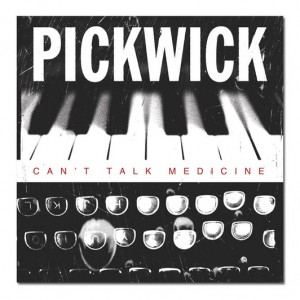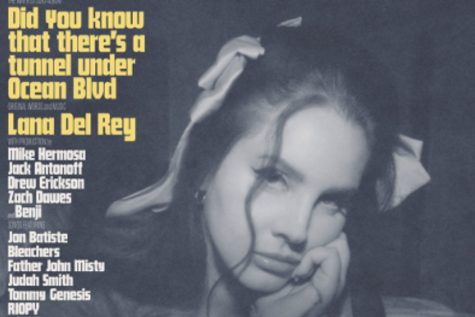Pickwick releases debut
March 18, 2013
By Craig Brinkerhoff
Staff Writer
“You said your works in the air, touch me to complete the current sound,” Galen Disston begins “Halls of Columbia” with this line, setting in motion the sound and style that will encapsulate Seattle based indie rock band Pickwick’s debut album Can’t Talk Medicine.
Pickwick plays standard indie rock with a heavy emphasis on soul and blues. The band released the album on Tuesday, March 12th.
“Halls of Columbia” begins with a biting piano bit, but soon transitions into quintessential soul rock, with clean guitars and the piping vocals of the ever talented Disston. The song fades off into distorted rhythms and guitar lines.
“The Round” comes on next, with a heavier lean on a polished, soul-infused sound then its more gritty predecessor. Here is where Disston’s voice really shines; his crooning vocals make this one of my favorite tracks.
The album maintains a great forward momentum, with “Hacienda Motel” and “Well, Well” finishing off the beginning of the record. “Hacienda Motel,” the tune that gained the band the attention they receive in Seattle, thanks in part to influential radio station KEXP, was the first song the band had written in their modern form. Amid an ever-funky bass line, it is the poster child for what Pickwick has become.
Pickwick began as a folk rock outfit, much akin to Mumford and Sons, but with accordions instead of banjos. Since the band churned out “Hacienda Motel,” they have been garnering a steady fanbase, despite being unsigned.
The second half of the record does not quite have the momentum the beginning did, and feels more confused and disoriented.
“Letterbox” is effectively that one track on an album that no matter what you try to tell yourself, you will never like. There is nothing to do but simply hit the next button.
A noteworthy song at the end of the record is the uniquely different “The Shadow.” This track is surely one of the strongest, up there with the tracks toward the start of the album. Complete with funky bass, surf rock guitar lines, and Disston’s golden vocals, this is my favorite track on the album.
When one listens to this record, some similarities come to mind. If you were not to know who was playing, you might mistake Pickwick for the soul-rock cousin of The Black Keys. In the latter half, the band finds a more individualized sound, but one has to wonder why those beginning tracks are generally the strongest.
Regardless, Pickwick seem to have a big future ahead of them.
















